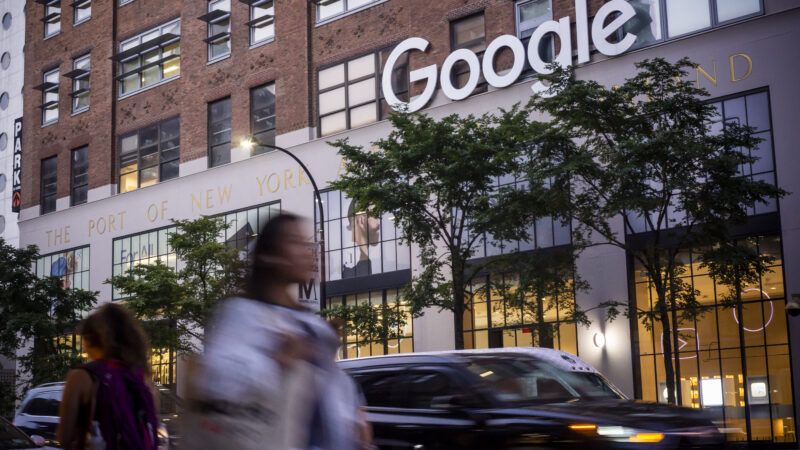Republicans and Democrats Battle To Control What Google Shows People Seeking Pregnancy Help
It's none of their business.

Google can't win when it comes to ads for crisis pregnancy centers. Democrats in Congress have been pressuring Google to "limit the appearance" of ads and websites for these businesses, which exist to persuade pregnant women not to abort and aren't always truthful about their nonneutral viewpoint or abortion realities. Now, Republicans are threatening to take action against Google if it gives in.
"Complying with these demands would constitute a grave assault on the principle of free speech," a group of 17 Republican attorneys general wrote in a letter to Google CEO Sundar Pichai this week. "Suppressing pro-life and pro-mother voices at the urging of government officials would violate the most fundamental tenet of the American marketplace of ideas."
They're not wrong. It's one thing to suggest that crisis pregnancy centers should be held accountable if they're breaking the law in some way. It's quite another for federal lawmakers to pressure a private company to suppress information about crisis pregnancy centers. That smacks of unconstitutional censorship.
The situation has relevance far beyond Google and crisis pregnancy centers, showcasing the impossible situation that many tech companies now find themselves in when it comes to handling controversial content. Democrats routinely demand that these companies do more to limit or quash misinformation—whether it's about abortion, elections, COVID-19, or anything else—and other types of speech they deem dangerous. Meanwhile, many Republicans want to make it illegal for tech companies to suppress or moderate certain sorts of information at all.
The GOP position ends up being more friendly to free speech in a nominal sense, but risks—as in the case of recent Texas and Florida social media laws—swinging so far toward the free speech side that it perversely becomes anti-speech. After all, the First Amendment protects the right of individuals and entities not to engage in government-compelled speech too. Google, Facebook, Twitter, etc. should be able to platform whatever type of legal speech they choose but should also be free to limit or ban it too.
In this case, the Republican attorneys general are right to suggest that Democrats' demand to limit crisis pregnancy center information was "inappropriate."
But they're throwing their weight around a little too much to be painted as unqualified free-speech defenders. In demanding Google explain to them—within 14 days—whether it has started handling crisis pregnancy center results any differently, and threatening the company with an investigation or new regulations if so, the Republican prosecutors risk further encroaching on the company's right to moderate search results as it sees fit.
This kerfuffle over crisis pregnancy center results also highlights how much politics has become a battle for control of online information—and provides a discouraging sneak peek at all the abortion-related speech battles to come.


Show Comments (85)